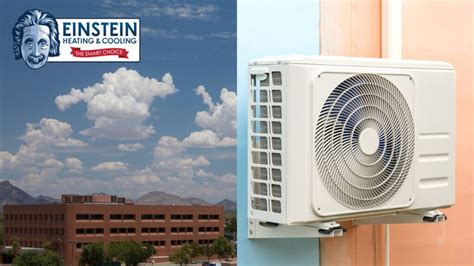The way we heat and cool our homes, workplaces, and communities is undergoing a significant transformation, driven by advancements in climate technology. As concerns about climate change and energy efficiency continue to grow, innovative solutions are emerging to reduce our reliance on fossil fuels and mitigate the environmental impact of traditional heating and cooling systems.
Climate Tech: A New Era in Heating and Cooling

Climate technology, or climate tech, encompasses a broad range of innovative solutions aimed at reducing greenhouse gas emissions and promoting sustainable development. In the context of heating and cooling, climate tech is revolutionizing the way we approach temperature control, offering more efficient, sustainable, and environmentally friendly alternatives to traditional systems.
The Challenges of Traditional Heating and Cooling
Traditional heating and cooling systems, such as furnaces, air conditioners, and heat pumps, rely heavily on fossil fuels and electricity, contributing to greenhouse gas emissions and climate change. These systems also often have significant drawbacks, including:
- High energy consumption and costs
- Environmental impacts, such as air pollution and carbon emissions
- Limited efficiency and effectiveness
- Maintenance and repair requirements
Climate Tech Solutions: A New Paradigm

Climate tech solutions for heating and cooling offer a new paradigm, prioritizing sustainability, efficiency, and environmental stewardship. Some of the most promising climate tech solutions include:
- Heat Pumps: Highly efficient systems that transfer heat from one location to another, rather than generating heat from fuel.
- Geothermal Systems: Harnessing the natural heat of the earth to provide heating and cooling.
- Solar Thermal Systems: Using solar energy to provide heating and hot water.
- Advanced Insulation Materials: Innovative materials that reduce heat loss and gain, minimizing the need for heating and cooling.
- Smart Building Technologies: Integrating sensors, algorithms, and IoT devices to optimize heating and cooling systems, reducing energy consumption and improving comfort.
Benefits of Climate Tech Solutions
The benefits of climate tech solutions for heating and cooling are numerous, including:
- Reduced Energy Consumption: Climate tech solutions can significantly reduce energy consumption, leading to lower energy bills and a smaller carbon footprint.
- Improved Efficiency: Climate tech solutions are designed to maximize efficiency, minimizing energy waste and optimizing performance.
- Environmental Benefits: Climate tech solutions can reduce greenhouse gas emissions, air pollution, and other environmental impacts associated with traditional heating and cooling systems.
- Increased Comfort: Climate tech solutions can provide improved comfort and indoor air quality, enhancing the overall living and working experience.
Real-World Applications of Climate Tech

Climate tech solutions are being applied in a variety of settings, including:
- Residential Buildings: Homeowners are adopting climate tech solutions, such as heat pumps and solar thermal systems, to reduce energy consumption and improve comfort.
- Commercial Buildings: Businesses are integrating climate tech solutions, such as advanced insulation materials and smart building technologies, to minimize energy waste and enhance occupant comfort.
- Industrial Processes: Climate tech solutions are being applied in industrial processes, such as HVAC systems and refrigeration, to reduce energy consumption and improve efficiency.
Challenges and Opportunities
While climate tech solutions offer significant benefits, there are also challenges and opportunities to consider:
- High Upfront Costs: Climate tech solutions can be more expensive than traditional systems, although long-term cost savings and environmental benefits can offset these costs.
- Infrastructure and Installation: Climate tech solutions may require specialized infrastructure and installation, which can be a barrier to adoption.
- Education and Awareness: Raising awareness and educating consumers, businesses, and policymakers about the benefits and opportunities of climate tech solutions is essential for widespread adoption.
Conclusion: A Sustainable Future
The climate tech revolution is transforming the way we approach heating and cooling, offering a sustainable future for our planet. As we continue to innovate and adopt climate tech solutions, we can reduce our reliance on fossil fuels, minimize environmental impacts, and create a more comfortable and sustainable living and working environment.






What is climate tech?
+Climate tech refers to innovative solutions aimed at reducing greenhouse gas emissions and promoting sustainable development.
What are the benefits of climate tech solutions for heating and cooling?
+The benefits of climate tech solutions for heating and cooling include reduced energy consumption, improved efficiency, environmental benefits, and increased comfort.
What are some examples of climate tech solutions for heating and cooling?
+Examples of climate tech solutions for heating and cooling include heat pumps, geothermal systems, solar thermal systems, advanced insulation materials, and smart building technologies.
